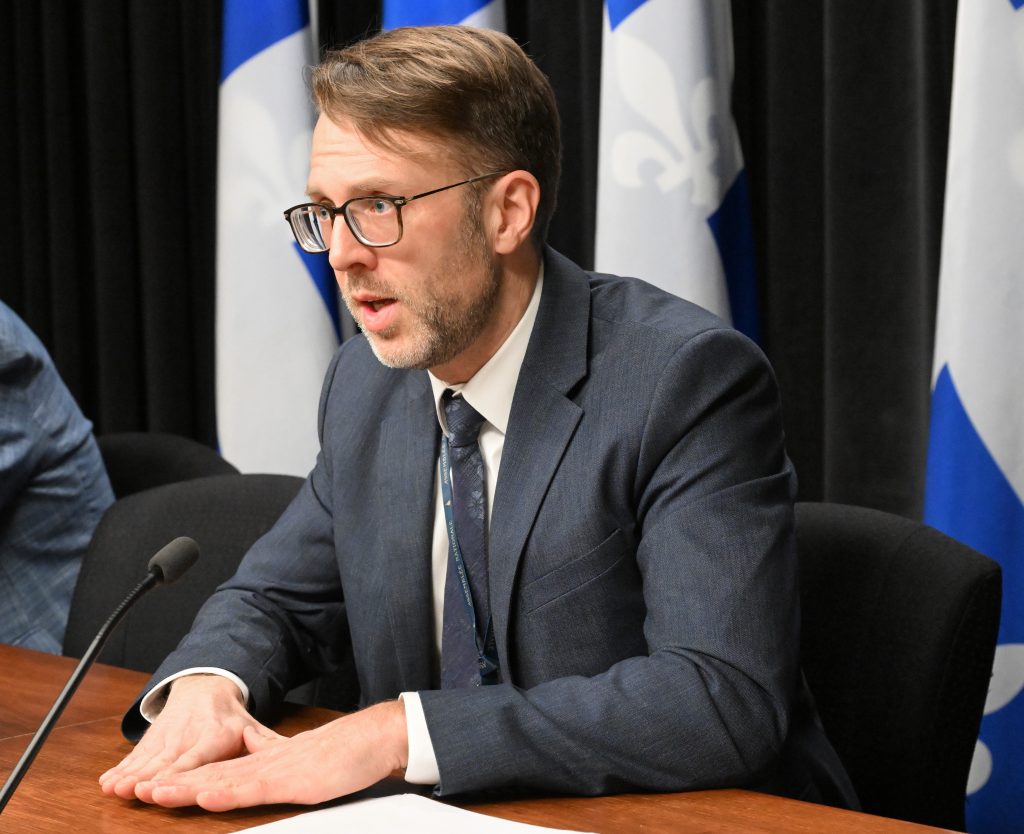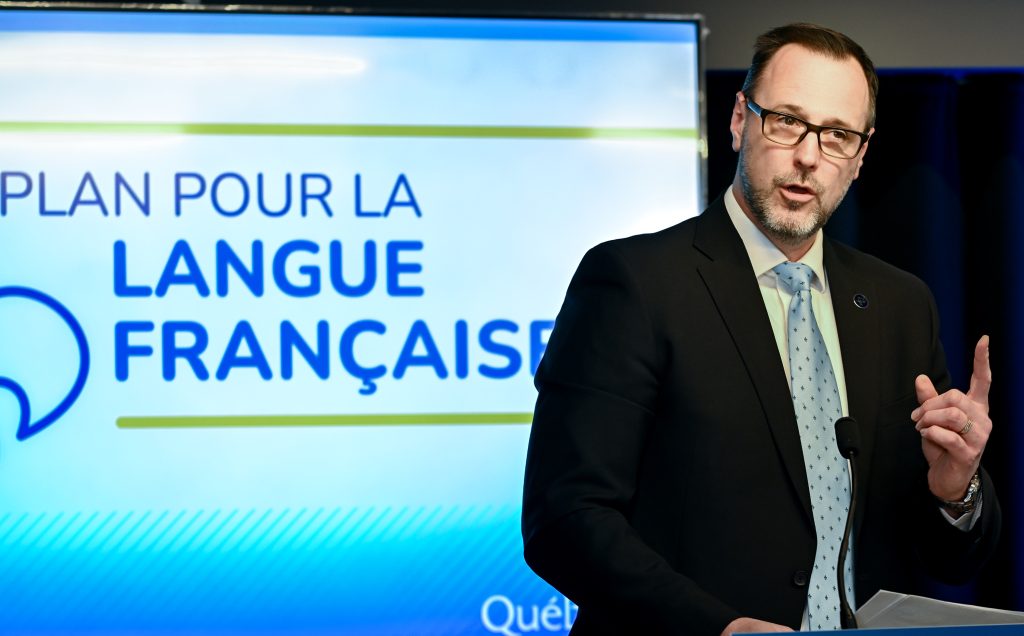$13 billion for Francization of temporary immigrants in Quebec

Posted February 15, 2024 11:11 am.
Last Updated February 15, 2024 4:15 pm.
The number of temporary immigrants in Quebec has “played a central role in the decline of the French language,” said French Language Commissioner Benoît Dubreuil in a report tabled Wednesday in the National Assembly.
He added it would cost between $10.6 and $12.9 billion for all temporary immigrants to complete an intermediate level of training in French.
“That’s quite a lot of money because learning French takes a lot of hours. About a year of full-time study,” he told reporters at the National Assembly
Dubreuil did not say who should pay this amount but said “someone should.”
“It could be the government by increasing its financial assistance. It could be employers by freeing up workers during their working hours, or it could be universities by offering more bursaries,” he said. “Finally, it could be the immigrants themselves by cutting the number of hours they work or by cutting back on their personal hours.”
The commissioner said that the current rate at which French is being learned is insufficient.
He stated that most temporary immigrants who do not know French have not enrolled in courses offered by Francisation Québec.
“Of those who have enrolled, many have not been offered a place. And of those who did get a place, most only took part-time courses lasting a few months, which is not enough time to learn to speak French fluently,” he said.
Dubreuil claims that the number of hours spent on francization this year was approximately five to six per cent of the number needed for all temporary immigrants to be able to speak French fluently.
There are currently 36,304 temporary immigrants on waitlists for a spot in a French class.
Dubreuil declined to comment on whether Quebec’s intake capacity had been reached or exceeded.
“From a linguistic point of view, what counts is not the total number of people. It’s much more the profile of the people arriving that’s decisive,” he explained. “So, if we want French to survive, ideally we need to have the right mix of immigrants on arrival.”
Rising immigration numbers
The report states that from 2016 to 2023, Quebec would have grown from 86,065 to 528,034 temporary immigrants.
“From 2021 to 2023, the non-permanent population that did not know French would have practically tripled. In October 2023, it was likely to be between 155,351 and 191,015 people,” reads the Commissioner’s document.
Dubreuil estimates in his report that the population without French knowledge and the population working mainly in English would both have increased by one percent.
“1 per cent drop in French at work, for example, in two years, is historically huge. In fact, I think it’s incomparable.”
Dubreuil made a series of recommendations in his report.
First, he suggests setting up a public dashboard to monitor the evolution of non-permanent residents, including language spoken by temporary immigrants.
The purpose of this dashboard would be to strengthen the planning, monitoring and evaluation of policies related to temporary immigration.
The commissioner is proposing to develop upstream recruitment channels to attract French-speaking workers. The government should also consider offering additional financial assistance to help temporary immigrants learn French before they arrive in Quebec.
Dubreuil also supports a request from the Coalition avenir Québec government for asylum seekers to be better distributed across Canada. But he adds that the distribution should be based on language.
In short, Quebec would keep French-speaking asylum seekers, while those who speak English would be redirected to the other Canadian provinces.
However, Québec solidaire says it opposes the last recommendation.
“We want a balanced distribution of asylum seekers, but departures from Quebec to live elsewhere in Canada must be voluntary and humane. What’s more, there are solutions such as reviewing the temporary immigration model, which has exploded, and offering more incentives to asylum seekers and all new arrivals for francization,” said Québec solidaire official for immigration Guillaume Cliche-Rivard, in an email.
This report by La Presse Canadienne was translated by CityNews.



